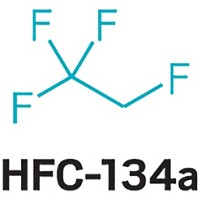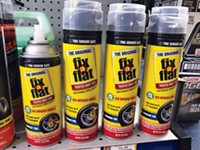Advertisement
Grab your lab coat. Let's get started
Welcome!
Welcome!
Create an account below to get 6 C&EN articles per month, receive newsletters and more - all free.
It seems this is your first time logging in online. Please enter the following information to continue.
As an ACS member you automatically get access to this site. All we need is few more details to create your reading experience.
Not you? Sign in with a different account.
Not you? Sign in with a different account.
ERROR 1
ERROR 1
ERROR 2
ERROR 2
ERROR 2
ERROR 2
ERROR 2
Password and Confirm password must match.
If you have an ACS member number, please enter it here so we can link this account to your membership. (optional)
ERROR 2
ACS values your privacy. By submitting your information, you are gaining access to C&EN and subscribing to our weekly newsletter. We use the information you provide to make your reading experience better, and we will never sell your data to third party members.
Environment
Court strikes down U.S. restrictions on HFCs
EPA rule had limited potent greenhouse gases, boosted market for HFO substitutes
by Cheryl Hogue & Marc Reisch
August 8, 2017

A federal appeals court has struck down a U.S. regulation that requires manufacturers to replace hydrofluorocarbon refrigerants with chemicals that are less potent greenhouse gases.
The Aug. 8 decision hands a victory to HFC makers Mexichem Fluor and Arkema. It’s a loss for Honeywell International and Chemours, which manufacture hydrofluoroolefins, a new generation of refrigerants which have a very low potential to cause global warming. In a statement, Honeywell says it is “deeply disappointed” in the court’s ruling.
The legal case involves a 2015 regulation from the Obama Environmental Protection Agency. The agency restricted HFCs and blends containing HFCs because of their potential to contribute significantly to global warming. Not only did the regulation limit these chemicals in refrigerants for vehicle air conditioners, coolers in groceries and other retail stores, and vending machines, it also limited their use as blowing agents that expand plastic into foam and in aerosol cans.
EPA based its regulation on a part of the Clean Air Act that requires manufacturers to replace substances that deplete stratospheric ozone with safer substitutes. HFCs don’t harm the ozone layer, but they were developed as alternatives for chemicals, such as hydrochlorofluorocarbons, that do.
“The fundamental problem for EPA is that HFCs are not ozone-depleting substances,” the U.S. Court of Appeals for the District of Columbia ruled. The section of the Clean Air Act that EPA used as the basis for its regulation does not give the agency authority to require replacement of substances that do not harm stratospheric ozone, a three-judge panel ruled. HFOs, like HFCs, are benign to stratospheric ozone.
The decision has implications for the U.S. in an international treaty, the Montreal Protocol on Substances that Deplete the Ozone Layer, points out Sen. Thomas Carper (D-Del.). Under that pact, the U.S. has an obligation to phase out HFCs. Carper says he will work with the Trump Administration and colleagues in Congress to shift the U.S. from use of HFCs to “smarter alternatives.”
Mexichem Fluor and Arkema, which brought the case against EPA, make HFC-134a, which has been used widely in car air conditioners for years. The EPA rule would have banned the use of HFC-134a as an air conditioner refrigerant in most cars and trucks sold in the U.S. starting with model-year 2021.
Chemours and Honeywell, makers of the new automotive refrigerant HFO-1234yf, intervened in the case on behalf of EPA.
“We strongly encourage the EPA to continue pursuing the phase-out of HFCs and the benefits it provides,” Honeywell says.





Join the conversation
Contact the reporter
Submit a Letter to the Editor for publication
Engage with us on Twitter